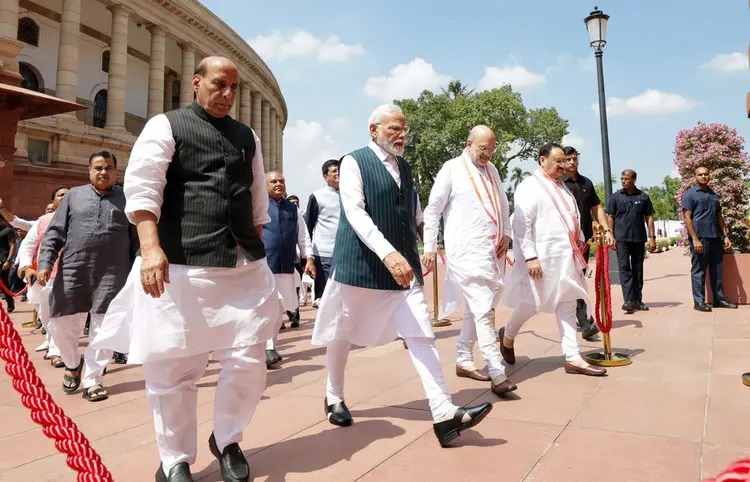
Kovind Panel Report: The Modi Cabinet on Thursday approved a bill to implement ‘One Nation, One Election’ and the draft law is likely to be introduced in Parliament in the current winter session. This decision was taken in the cabinet meeting led by Prime Minister Modi. The government wants to discuss this bill at a large level, which is likely to be sent to a parliamentary committee.
Sources said that the government committee will also take advice from the assembly speakers of various states. Moving forward on the ‘One Nation One Election’ plan, the government in September accepted the recommendations of a high-level committee to hold simultaneous elections for the Lok Sabha, state assemblies and local bodies sequentially. Once this bill is approved, the upcoming elections in many states including Gujarat will be held before time.
Recommendations made under One Nation One Election Scheme
1. The committee came to the conclusion that holding elections repeatedly every year has a negative impact on the economy, politics and society. To reduce these burdens, it has been recommended to hold simultaneous elections.
2. In the first phase, the dates of elections for Lok Sabha and state assemblies will be kept together. After that, Municipal Corporation and Panchayat elections will also be held, which will be held in 100 days.
3. After the Lok Sabha elections, the President may issue a notification declaring the date of convening of the Lok Sabha as a ‘fixed date’ to facilitate continuous coordination.
4. The tenure of the newly formed state assemblies will be shortened with the next general elections.
5. The Committee recommended the establishment of an Implementation Group to ensure successful implementation of these reforms.
6. The committee has suggested invoking Article 324A to hold simultaneous elections for panchayats and municipalities and proposed amendment to Article 325 to create a unified voter list and photo identity card for all elections.
7. In the event of a no-confidence motion or lack of majority in the House, new elections will be held, but the tenure of the newly elected House will be extended only till the next general election.
8. The committee advocates fresh elections in case of a no-confidence motion or a hung House. The newly elected Lok Sabha will serve the remaining term of the previous Lok Sabha, while the State Legislative Assemblies will continue till the expiry of the term of the Lok Sabha, unless earlier dissolved.
9. The Committee advised the Election Commission to proactively plan for the procurement of essential equipment such as EVMs and VVPATs for smoothly conducting elections.
10. The committee has proposed a unified voter list and ID card system for all elections, which would require a constitutional amendment and states would have to support it.
 look news india
look news india
